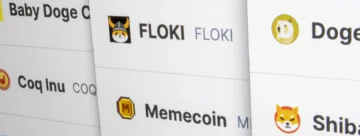Who Develops and Funds Bitcoin: A List of Developers and Related Organizations

When we talk about Bitcoin development, who is the first person that comes to mind? Of course, we immediately think of Satoshi Nakamoto — the first person to talk about Bitcoin in 2008 in his article entitled “A Peer-to-Peer Electronic Cash System.” However, many more people and organizations have worked and continue to work on Bitcoin Core (formerly called Bitcoin-qt).
Bitcoin: Development and Funding — How’s It Going?
The main task of the team working on the code and tests is to ensure system stability, which is why changes are generally slow to accept. The software is developed on GitHub using the Git version control system. Furthermore, anyone can check out the public repository, as well as suggest edits. Therefore, the list of contributors on the official site is full of people who have made minimal input.
Discussions about innovations are also held on GitHub. There a mailing list and the irc.freenode.net #bitcoin-dev server are also used for individual threads.
Significant adjustments to the protocol are barely allowed. Instead, those who want updates are encouraged to make forks (alternate versions). A majority of mining pool owners must accept substantial changes and all questions are voted on. Only key users — maintainers or technical administrators — can permit any new edits to the main code.
The Most Famous Bitcoin Developers
All developers who work on the project can be roughly divided into two groups: those who have permission to approve commits and those who just do edits. Basically, the people whose keys are used to approve commits are the first among equals. They make the crucial decisions. The others have a say, but not the power.
A system of trusted keys is needed to make sure that a reliable author approves commits, i.e. edits that get into the main code. One of the account or group administrators adds keys to the repository settings. Bitcoin programmers decide who gets trusted keys during CoreDev meetings. Usually, they choose among those nominated by experienced team members.
The Core Team
There are eight trusted keys in the repository of the Bitcoin project. They belong to the following people:
- Wladimir van der Laan (laanwj). He has been working on the project since 2011. Van der Laan runs a blog in English. At the beginning of 2021, he decided to retire from active development and announced to be in a “background role.”
- Pieter Wuille (sipa). According to his LinkedIn profile, he works at Chaincode Labs. In 2014, Wuille co-founded Blockstream. He is known for his work on Segregated Witness (BIP 141 and 144) and Taproot / Schnorr (BIP 340, 341 and 342).
- Jonas Schnelli (jonasschnelli). He has been participating in this project since 2013. In early 2021, he received a grant from Marathon Patent Group. In October 2021, Jonas announced his departure from the group of core developers, although he still remains among the technical administrators.8
- Marco Falke (MarcoFalke). He is the most prolific developer, having logged around 2,000 commits. Falke joined the project in 2016. He prefers to be engaged in testing. As such, he has been an OKCoin exchange nominee and grant recipient.
- Samuel Dobson (meshcollider). He had direct access to the cryptocurrency code and dealt with protocol security. On December 9, 2021, Dobson officially announced that he was leaving his job to pursue science.
- Michael Ford (fanquake). Ford started working on this project in 2012 and became a maintainer in 2019 after the CoreDev meeting. He received a grant incentive from Gemini.
- Hennadii Stepanov (hebasto). Stepanov is an experienced programmer from Ukraine. He received a grant for Bitcoin support and enhancement in 2020 and earned the extension of this grant for 2021. He is engaged in network processing, interface, building, checking and testing control.
- Andrew Chow (achow101). He works as an engineer at Blockstream, and his main focus is the hardware wallet interface. Chow hosts themed programming broadcasts on Twitch.
People who have trusted keys are also called technical administrators. The program development team decides what to do with the access of people who have left the group. The Bitcoin repository has all the trusted keys, including those who announced their departure.
Other Active Users of the Repository
As mentioned above, anyone can suggest changes to Bitcoin Core code. Therefore, the website lists 350 people — everyone who logged at least two commits. The list of the most active users can be found in the repository description. Among them stand out:
- John Newbery (jnewbery). Newbery is a programmer from the UK. He writes his own blog and works at Chaincode Labs.
- Thomas J (practicalswift). He has been a member of the team since 2017 but remains partly anonymous (the page has no personal information).
- Cory Fields (theuni). Previously worked on the XBMC project.
- Matt Corallo (TheBlueMatt). Corallo is a Canadian developer. He helped create Bitcoin Core and also co-founded Blockstream.
- Jon Atack (jonatack). He is a prominent community member. In June 2021, Atack received a Strike grant for developers. In August 2021, he got grant money from Compass Mining. According to a link to a Twitter blog, he appears to be interested in Buddhism.
- Gavin Andresen (gavinandresen). A US-based developer. Andresen runs a personal blog with political opinions and posts about the world situation.
- Luke Dashjr (luke-jr). Dashjr lives in the US (Florida) and keeps a channel on Patreon. He has been working on Bitcoin since 2011.
- Russell Yanofsky (ryanofsky). Yanofsky grew up and lives in the US, working on several projects on GitHub, including ViewVC.
- Carl Dong (dongcarl). He lives in New York City and works at Chaincode Labs.
Each of them has contributed over 400 commits since the repository’s inception. Many of them do not have a unique social life, do not give interviews or create personal pages, but just write code, so the information about them is few and far between.
The most active ones in the repository right now are MarcoFalke, laanwj, sipa, hebasto, fanquake, jnewbery, practicalswift, achow101, jonatack, dongcarl, theStack, glozow, vasild, amitiuttarwar, mzumsande and kiminuo. All of them have been working on Bitcoin for the past two years.
The Most Well-Known Bitcoin Organizations
The world’s most popular cryptocurrency couldn’t help but attract the attention of big businesses. However, most firms do not sponsor cryptocurrency development but prefer to invest in crypto assets themselves. Yet, organizations (often non-profit ones) hire programmers who write Bitcoin code or offer grants.
Businesses with Developers on Staff
A small number of entities, primarily non-profits, hire Bitcoin Core developers on staff. Most of the people listed in the previous section work there. The three most popular brands are:
- Chaincode Labs. It is a non-profit organization based in the United States. The founders are Alex Morcos and Suhas Daftuar. It was created to develop and support Bitcoin. The full team can be found on the company’s website.
- MIT DCI. It is a Boston-based non-profit group. The company runs its business on donations. It employs Wladimir van der Laan and Cory Field.
- Blockstream. It is a Canadian-based commercial organization funded by venture capital. It employs Pieter Wuille and Andrew Chow and has several people working on related projects and developing products based on the Lightning protocol.
Some companies like DG Lab, Purse, and Xapo have stated that they have several Bitcoin developers on staff, although they do not specify who they are.
Some organizations and companies work on developments close to the Bitcoin environment: for example, Square Crypto, Lightning Labs, Acinq, etc. Their in-house and freelance programmers can work on Lightning Network, Omni Layer protocols, and other projects based on Bitcoin blockchain, etc.
Companies Offering Grants
A huge number of firms give grants for Bitcoin development. They can be provided for a year, six months or even a month. Most of them are not permanent and are offered mainly for PR purposes. However, some companies give grants on a regular basis, such as:
- Square Crypto. A non-profit organization based in San Francisco. It is funded by Square Inc and offers several incentive programs for Bitcoin developers.
- BitMEX. A commercial company registered in Seychelles. The company gives one grant and cooperates with a contractor who works on Bitcoin Core.
- Hardcore Fund. It gives two relatively small incentives for crypto programmers.
The Bitcoin Foundation is widely known, founded in 2012 by former Bitcoin team member Gavin Andersen (he had been working on the project since 2010, left in 2014 after offering his own crypto product called Bitcoin XT).
Commonly, a team member who works on Bitcoin lives on donations and sponsors’ help. They often run a Patreon account where they rely on donations from their contacts.
The development of Bitcoin Core isn’t over. We now see that both experienced developers and sponsors actively support the cryptocurrency system. Diverse people and companies are engaged in its maintenance, which is important in supporting its decentralization, as it ensures the project’s stability and independence. What will happen next? Only time will tell.











